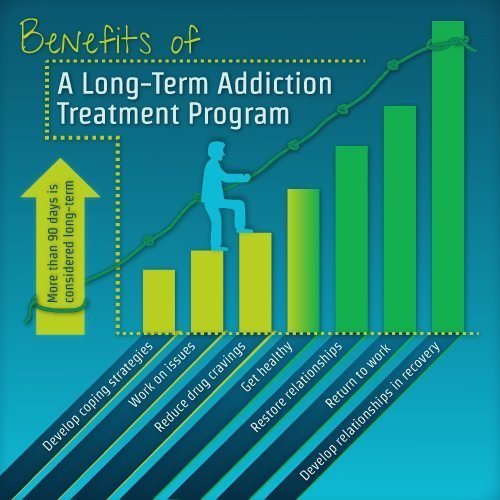The 9-Minute Rule for Narconon Africa
The 9-Minute Rule for Narconon Africa
Blog Article
The 7-Second Trick For Narconon Africa
Table of ContentsSome Known Incorrect Statements About Narconon Africa Some Known Questions About Narconon Africa.Not known Incorrect Statements About Narconon Africa The Greatest Guide To Narconon AfricaAbout Narconon AfricaAll About Narconon AfricaThe smart Trick of Narconon Africa That Nobody is Discussing
In a collection of papers with Manudeep Bhuller and Katrine V. Lken, we overcome these information difficulties and the nonrandomness of jail time, using new understandings into just how imprisonment affects recidivism, work, children, and criminal networks - L. Ron Hubbard rehabilitation methods. Figure 1 Our work studies the impacts of imprisonment in Norway, a setup with two essential benefitsWe can even more link this information to other household participants, consisting of youngsters and brother or sisters. Moreover, we know on co-offending that allows us to map out criminal networks for observed criminal offenses. Second, we can leverage the arbitrary job of criminal cases to judges who vary in their tendencies to send defendants to prison.
Some courts send out offenders to prison at a high rate, while others are much more lenient. We gauge a court's stringency as the ordinary imprisonment price for all various other cases a judge deals with, after managing for court and year fixed impacts, which is the level of random project. This quasi-random assignment of judge stringency can be utilized as an instrument for incarceration, as it highly anticipates the judge's choice in the current case, however is uncorrelated with other case qualities both by design and empirically.
An Unbiased View of Narconon Africa
Characteristics of prisoners, including demographics and crime classifications, are broadly comparable in Norway and other countries, consisting of the United States, with the exceptions that the US murder rate is much higher, and race plays a larger duty there. What sticks out as various, particularly contrasted with the USA, is the prison system.
Number 2In Norway, the ordinary time spent in prison is a little over 6 months, which resembles most various other Western European countries. This contrasts with typical US jail time of almost three years, which is in huge component the factor the United States is an outlier in its imprisonment rate compared to the remainder of the globe [Number 1]
7 Simple Techniques For Narconon Africa
This gives a lot more splitting up between minor and hardened wrongdoers than exists in the United States. There is no congestion in Norwegian jails and much better individual safety and security, with each detainee being appointed to their very own cell and a greater inmate-to-staff ratio than in the United States (https://hearthis.at/narcononza12/set/5Z9zw/). Jails in Norway also use well-funded education and learning, medicine treatment, mental wellness, and work training programs
Our research on the effects of imprisonment on the offender, utilizing the random task of courts as a tool, returns 3 vital findings. Jail time inhibits further criminal behavior. We find that incarceration lowers the probability that an individual will reoffend within five years by 27 percent factors and reduces the corresponding number of criminal costs per individual by 10 charges.
Some Of Narconon Africa
We find substantial reductions in reoffending chances and collective billed criminal offenses also after accuseds are released from prison. Our 2nd outcome is that predisposition as a result of selection on unobservable individual qualities, if overlooked, results in the incorrect conclusion that time spent behind bars is criminogenic. If we just contrast criminal accuseds imprisoned versus those not imprisoned, we find favorable associations in between incarceration and succeeding criminal offense.
This stands in comparison to our analysis based on the random assignment of courts, which locates an opposite-signed result. Third, the reduction in criminal offense is driven by people who were not functioning prior to incarceration. Amongst these people, jail time raises participation in programs directed at improving employability and reducing recidivism, and this inevitably increases employment and earnings while preventing Overcoming addiction criminal habits.

Imprisonment triggers a 34 percentage factor rise in engagement in job training programs for the formerly nonemployed, and within five years their employment rate increases by 40 percentage factors. At the same time, the likelihood of reoffending within 5 years is cut by 46 percent points, and there is a decrease of 22 in the average variety of criminal charges.
Not known Details About Narconon Africa

A possible explanation for the difference is that Norway's jail system varies considerably, both in terms of prison-term size and jail problems, from the United States prison system. While comprehending the effects of imprisonment on the transgressor is an important initial action, capturing spillover results is additionally crucial for reviewing criminal justice policy and designing reliable jail systems.
The Greatest Guide To Narconon Africa

Average least squares estimates expose that youngsters of incarcerated fathers are 1 portion factor most likely to be charged with a criminal activity, about a mean of 13 percent, and show no impact on college qualities. Using our court stringency instrument, we find no statistical evidence that a dad's incarceration affects a youngster's own crime or school qualities, yet we are unable to dismiss modest-sized effects.
The Buzz on Narconon Africa
We define criminal teams based on network links to previous criminal situations. When a criminal network participant is incarcerated, their peers' chance of being charged with a future crime reduces by 51 percent factors over the next 4 years - http://go.bubbl.us/e2b209/7cb4?/New-Mind-Map.
Report this page